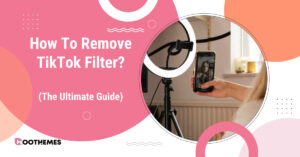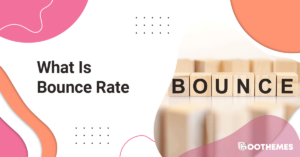One of the popular hubs for buying selling, and contacting other sellers is the Facebook marketplace. However, like any other online platform, you need to be careful about Facebook marketplace scams for safe and secure communication. This feature was announced in Oct 2016 and allows users to sell, trade, and buy products locally.
If you are thinking about using Facebook marketplace as a seller or buyer, you need to be aware of these scams on Facebook marketplace. In this article, we’ve shown you the ten most common scams to be aware of and avoid.
Buyer Facebook Marketplace Scams
Want to buy products from the Facebook marketplace? Here are some common scams you need to be aware of and avoid.
1. Counterfeit Goods
One of the most common scams on the Facebook marketplace that almost everyone has experienced at least once is counterfeit products. This marketplace is full of fake products purchased from countries such as China or Turkey.
Especially when trying to buy luxury products, the risk of receiving fake products is higher. Unfortunately, many sellers trick customers by selling these items as bargains and it’s not easy for customers to find out. So, how to avoid these types of Facebook marketplace buyer scams?
The best thing you can do is to research the seller before purchasing anything. Make sure to read the comments, ask online users on Reddit, and check their social media accounts.
2. Non-Delivery Items
Have you ever bought something from an online store but didn’t receive anything? One of the common Facebook marketplace scams is when the seller fools you after your purchase and doesn’t send you anything.
To avoid these types of scams, the easiest thing you can do is to check the photos of the item you want to buy. In most cases, the photos of the item may seem suspicious as they are not captured by the seller. Also, you can ask specific questions about the item and the seller may be unable to answer them since they don’t have the items.
If everything looks fine, you can ask the seller whether it’s possible to pay in person with cash. Also, make sure the payment method is safe and secure.
3. Phishing Scams
Another Facebook marketplace scam is when sellers steal your personal information. Scammers often try to set fake listings containing spam links to steal your information. If you see a website asking you for sensitive content such as passwords, phone numbers, WhatsApp contact numbers, email addresses, postal addresses, Social Security numbers, or financial information, that’s a huge red flag.
To avoid these Facebook marketplace scams for sellers, check the website’s trust score on platforms such as Trustpilot, etc. Check the URL to see if it’s suspicious and search on Google to see if there are multiple websites with the same name.
4. Rental Scams
Some people use the Facebook marketplace to rent properties, boats, bikes, spare rooms, cars, etc. In some recent Facebook marketplace car scams, the renter has made upfront payments but ends up with nowhere to stay and lost their money. To avoid these types of scams on the Facebook marketplace, make sure to pay for the rented equipment in person.
Also, keep in mind that Facebook is not the best place for buying property, so if it’s possible, try other platforms. Some obvious red flags help you prevent getting scammed such as low prices, limited time for making the payment, cash-only requests, etc. The best alternative to rent a house, spare room, etc is Airbnb, which is a totally safe company.
5. Pet Scams
After the pandemic in 2020, many users decided to buy pets since they were working from home. Some users decided to buy their pets from the Facebook marketplace but like always scammers try to take advantage of the situation.
To avoid falling victim to these frauds, make sure to meet the seller in person to ensure the pet is real, healthy, and living in a suitable environment.
Seller scams
If you want to sell items on the Facebook marketplace, there are different methods people try to scam you. Here are some of the most common scams on Facebook seller as a seller.
6. Payment Scams
If you have an online shop or store, you have probably faced these types of Facebook marketplace scams. Payment scams often target sellers on Facebook Marketplace, where buyers attempt to send fake payment receipts and claim to make the purchase.
So, before delivering any items, make sure to check your bank account and make sure you have actually received a payment from a buyer and check the amount. Also, stick to secure payment methods such as PayPal, as it protects sellers.
7. Returns Scams
Want to know how to avoid Facebook marketplace scams as a seller? Return scams are another type of frustration for sellers on Facebook where the buyer claims there are issues with their items or they don’t like them. After receiving the refund, they will fail to return the item and keep it, return a similar item that is damaged, or return something completely different.
By setting clear terms for returns, you can minimize the risk of buyers attempting to abuse the system for a refund. Additionally, it’s a good practice to document the condition of the product before shipping it to the buyer, taking photos, and keeping records.
8. Electronic Payment Delay
Electronic payment delay scams target sellers, where the buyer intentionally delays electronic payments. To protect yourself from these scams, it’s wise to set clear payment terms and deadlines in your listings. If you are selling items in person, make sure to wait for the payment to have cleared before allowing the buyer to leave.
9. 2FA Scams
Another type of Facebook marketplace scam asking for a phone number is when fraudster reach out to sellers and pretends to be interested in items for sale. They will ask for for number and other personal details and create a Google Voice account with it.
The scammer then tricks the victim into passing the verification code, which allows the scammer to set up a Google Voice account in the seller’s name. To avoid these types of Facebook marketplace scams, make sure to never share your phone number and especially 2FA codes with anyone.
10. Electronic Payment Delay Scams
You might think if you sell products in person, there is no way to get scammed. However, banking apps can become a bit unpredictable. As a seller, you may face buyers who claim that the payment has been made but is held up due to an electronic payment delay.
To avoid falling victim to electronic payment delay scams, it’s crucial to wait until the payment has cleared before allowing the buyer to leave with the item.
FAQs
1. What Should I Do If I Suspect A Rental Scam On Facebook Marketplace?
If you suspect a rental scam, insist on visiting the property in person before making any payments. Dealing with reputable property managers and being cautious about sharing personal information is crucial.
2. What Should I Do If I Encounter An Electronic Payment Delay Scam As A Seller On Facebook Marketplace?
If a buyer repeatedly delays electronic payments, set clear payment terms and deadlines in your listings. If problems persist, consider blocking or reporting the suspicious buyer to Facebook Marketplace.
3. What’s The Best Way To Spot A Reputable Seller On Facebook Marketplace?
To identify a reputable seller, look for a seller with a well-established history, positive reviews, and a consistent track record of successful transactions. Trust your instincts and communicate with the seller to build confidence in the transaction.
4. How Can I Recognize Phishing Attempts On Facebook Marketplace?
Be cautious of unsolicited messages with links, especially if they claim to be from official sources. Check the URL to ensure it’s legitimate, and avoid sharing sensitive information through such messages.
Conclusion
Facebook marketplace has become a perfect online shop for customers to buy what they need and for sellers to earn money. But similar to any online platform, you need to be careful about scammers. In this article, we’ve provided a list of the 10 most common Facebook marketplaces that you need to be aware of.








